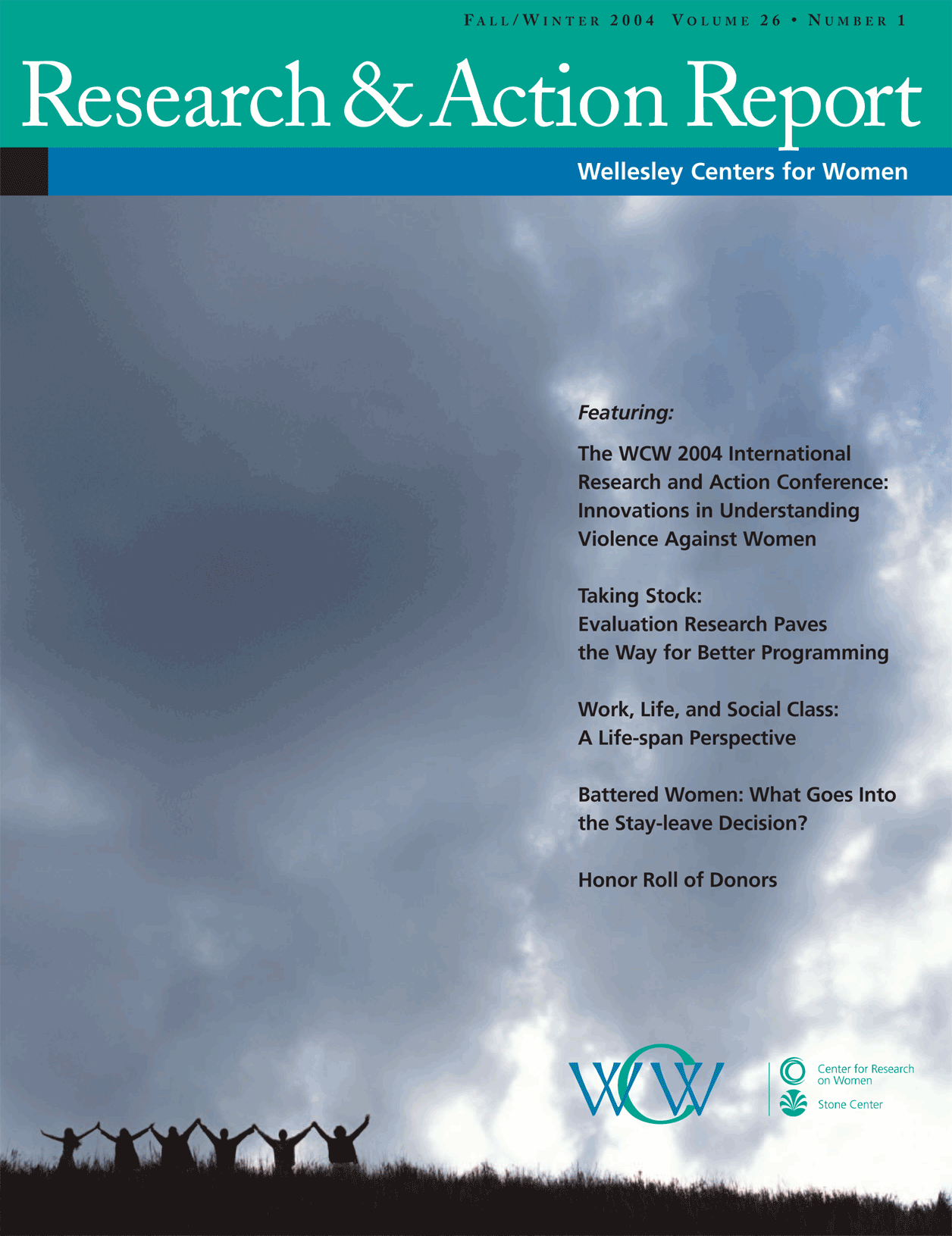The question most frequently asked of advocates and professionals who work with battered women is: “Why do women stay with men who abuse them?” The short answer is that they don’t: most women who are abused by an intimate partner do not stay with their abusers permanently. Most leave eventually, although the process of leaving may take months or years, with many starts and stops. Unfortunately, the end of the relationship does not necessarily mean the end of the abuse. For these reasons, a more fruitful question to ask is: “What goes into the decision to stay or leave?”
In April, the Wellesley Centers for Women waspleased to welcome colleagues working in 46 countries across the globe to the WCW 2004 International Research and Action Conference: Innovations in Understanding Violence Against Women. Chaired by Linda Williams, Victoria Banyard, and Nada Aoudeh, this truly international meeting was designed for researchers, activists, advocates, and practitioners from theacademic, nongovernmental, community-based, and government domains.
Research projects at the Wellesley Centers for Women can take a variety of forms. The mix of approaches ranges from the most “traditional” in which researchers develop an hypothesis, design a study to test it, draw a sample to use in gathering information, and go into the field to collect data, to secondary analyses of existing data sets, and to reviews of published research, such as WCW’s 1992 report for the AAUW, How Schools Shortchange Girls.
The aging of the baby-boom generation is producing profound changes in many sectors of society, the labor force being no exception. According to federal census data, there are currently about 22 million adults aged 55+ in the workplace, and that number represents only the oldest baby boomers.
You have been conducting research in child development and child care at the Wellesley Centers for Women for over 15 years. What initially inspired you to pursue this career? And what continues to inspire you?
Growing up, I always wanted to be a teacher. I started my undergraduate studies intending to study elementary education. However, I soon decided I should be prepared to teach all grades, as well as English and math. To do this meant taking extra classes, many of which met during the summer. One summer I took a linguistics class and fell in love with psycholinguistics and language development. I went on to receive my master’s degree in early childhood education and was able to study even more about linguistics. While pursuing my doctoral degree in language development at Harvard Graduate School of Education, I became interested in social policy and my interest in child care blossomed. At WCW I am able to combine my interest in child development and child care, and have been motivated by the desire to make a positive difference in the lives of children.

In this issue:
 | Wellesley Centers for Women 781.283.2500 |
Copyright © 2026 Wellesley Centers for Women, Wellesley College | Privacy Policy
